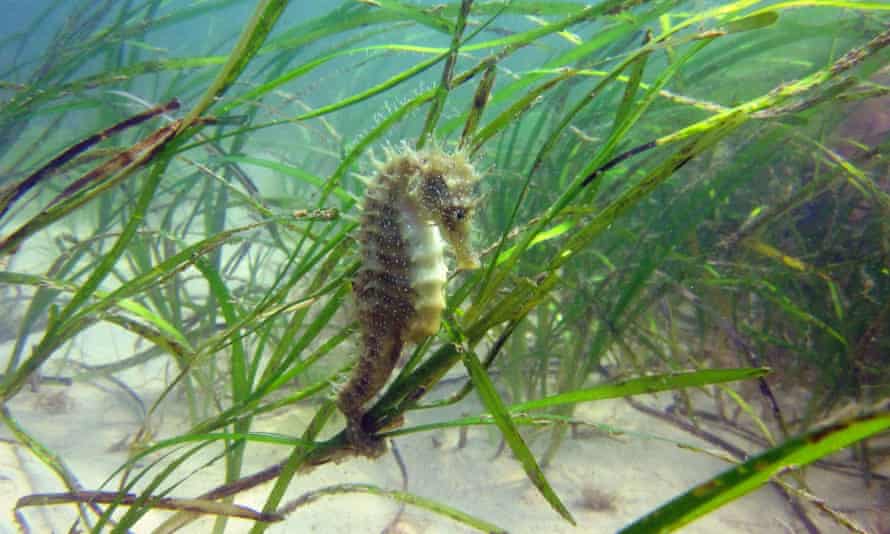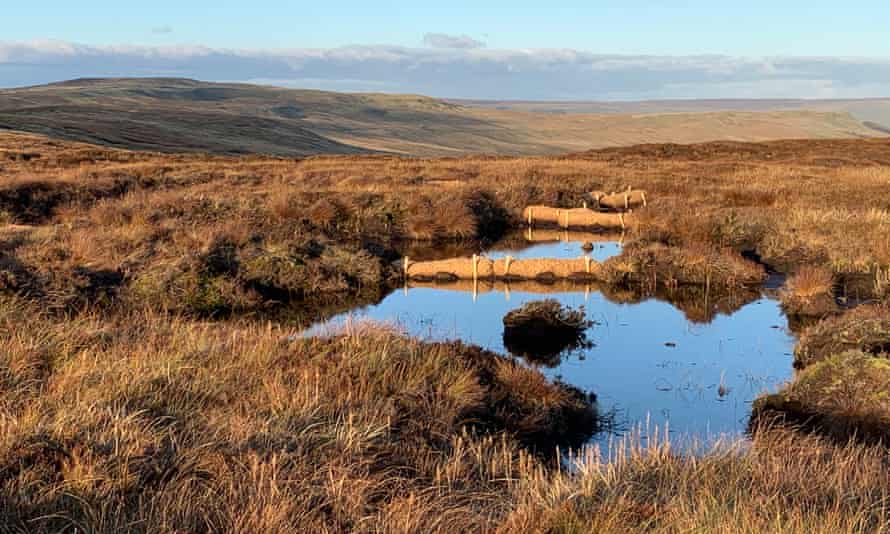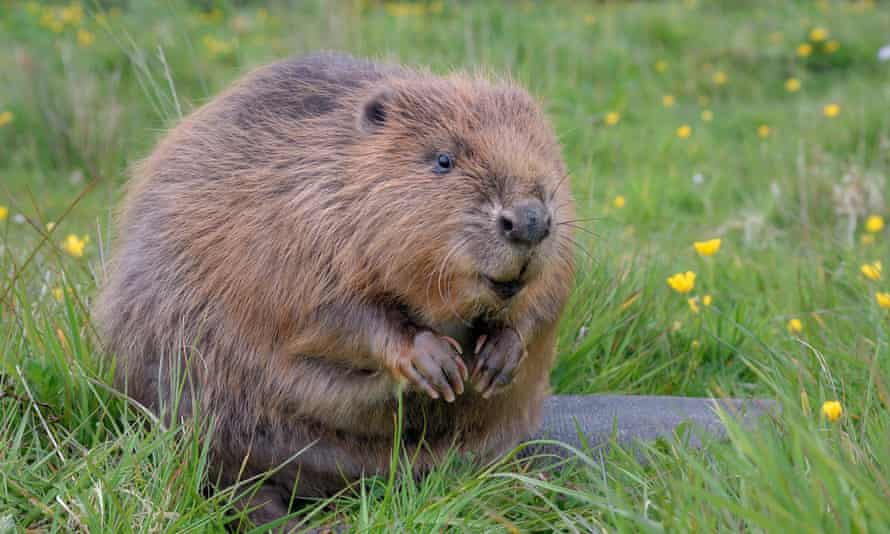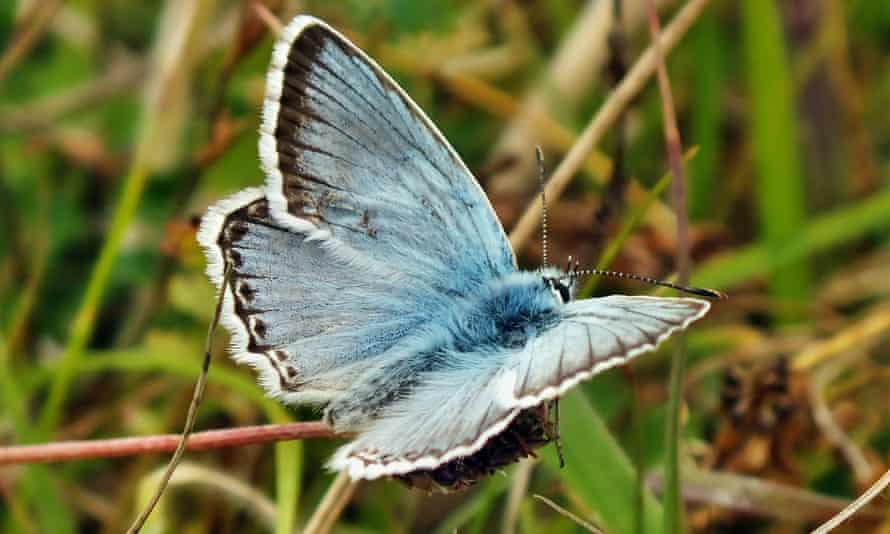‘High-impact’ wildlife projects aim to restore habitats across England
Funding for offshore kelp forest, butterflies, beavers and wetlands among other schemes will help address climate crisis

Last modified on Thu 8 Jul 2021 11.30 EDT
Restoring a kelp forest off the Sussex coast, creating new habitat for heat-sensitive butterflies and connecting fractured wetlands for the reintroduction of beavers are among 12 new projects receiving funding to help the UK tackle climate change, the Wildlife Trusts has announced.
Planting new seagrass pastures in the Solent, expanding salt marshes on the Essex coast and restoring peatlands in Cumbria, Durham, Yorkshire, Northumberland and Somerset are some of the “high-impact” schemes that the nature charity said will help mitigate the impact of global heating on land and at sea.
Alongside the projects, backed by nearly GBP2m of funding from players of the People’s Postcode Lottery, researchers will investigate how best to protect the UK’s ecosystems and biodiversity from rising temperatures, while also paving the way for the reintroduction of locally extinct species in some cases.

One project in East Anglia will work with Cambridge University researchers to understand how micro-habitats in chalk grassland can be created to protect temperature-sensitive butterflies like the small blue, the chalkhill blue and the Duke of Burgundy. Another in Derbyshire will restore woodlands in the Derwent Valley and, if successful, could lead to the reintroduction of the pine marten and red squirrel to the area. Funding will also go to a project off the Sussex coast championing the restoration of 200 sq km of lost kelp forest.
John Hughes, a development manager at Shropshire Wildlife Trust, which is benefiting from funding for a project to restore fragmented wetlands known as the meres and mosses in the West Midlands, said he hoped the schemes would encourage the public to support the large-scale restoration of ecosystems.

“If you want to inspire people, you do something like a beaver release. It’s not about the individual animal. It’s about explaining that nature has many of the answers to the problems that we face. Beavers are a wonderful solution to so many problems that beset wetlands in this country,” Hughes said.
The industrious rodent helps maintain wetlands and prevent downstream flooding by building dams, also supporting the amphibians, insects, plants and fish that share their habitat. Natural England require beavers to be fenced in under current reintroduction rules, although a record number are expected to be released this year.
Dr Gwen Hitchcock, a senior monitoring and research officer for the Wildlife Trust for Bedfordshire, Cambridgeshire and Northamptonshire, said the funding would enable further research into how to protect native insect species from a changing climate. Her trust’s project will test different butterfly bank designs in chalk grassland to encourage insect abundance in rising temperatures.
“Butterflies have very limited ways of influencing their own body temperature. Research has showed that larger, paler butterflies are better able to protect themselves from extreme temperatures, but darker and smaller species – particularly specialists – find it harder,” she said. “Depending on how much the climate changes, it may be that all of our species end up relying on particular habitat features. The aim of this study is to work out which features are going to be the best for them.”

Other projects include an effort to create a new nature reserve in South Lakeland, Cumbria, and to establish the county’s first paludiculture project to grow sphagnum moss, which hold up to 20 times their weight in water and aid the formation of peat. Another in Devon will create a nature-based solution centre on a farm to show how nature can help reverse the impacts of intensive agriculture.
A Nottinghamshire project will work with farms to create a network of restored habitats for pollinators and farmland birds. New funding for the Yorkshire wildlife trust will help scale up the Great North Bog project, which aims to put more than 4,000 hectares of upland peatland under restoration management.
Craig Bennett, chief executive of the Wildlife Trusts, said the 12 schemes were focused on both climate change mitigation and adaptation.
“We urgently need to be thinking about how we can let nature help in tackling the climate crisis [and] how it can help with adaptation. A lot of that is about holding water back in the landscape: recreating our wetlands, restoring our peatlands and reintroducing beavers,” he said. “We know there is a lot of eco-anxiety and sometimes people feel we are not changing fast enough. If we can establish large-scale projects and actually start to turn things around, we can demonstrate what can be done in the UK.”
Laura Chow, head of charities at People’s Postcode Lottery, said: “We’re delighted funding raised by our players is helping the Wildlife Trusts restore habitats across the country that play a key role in accumulating and storing carbon.”
